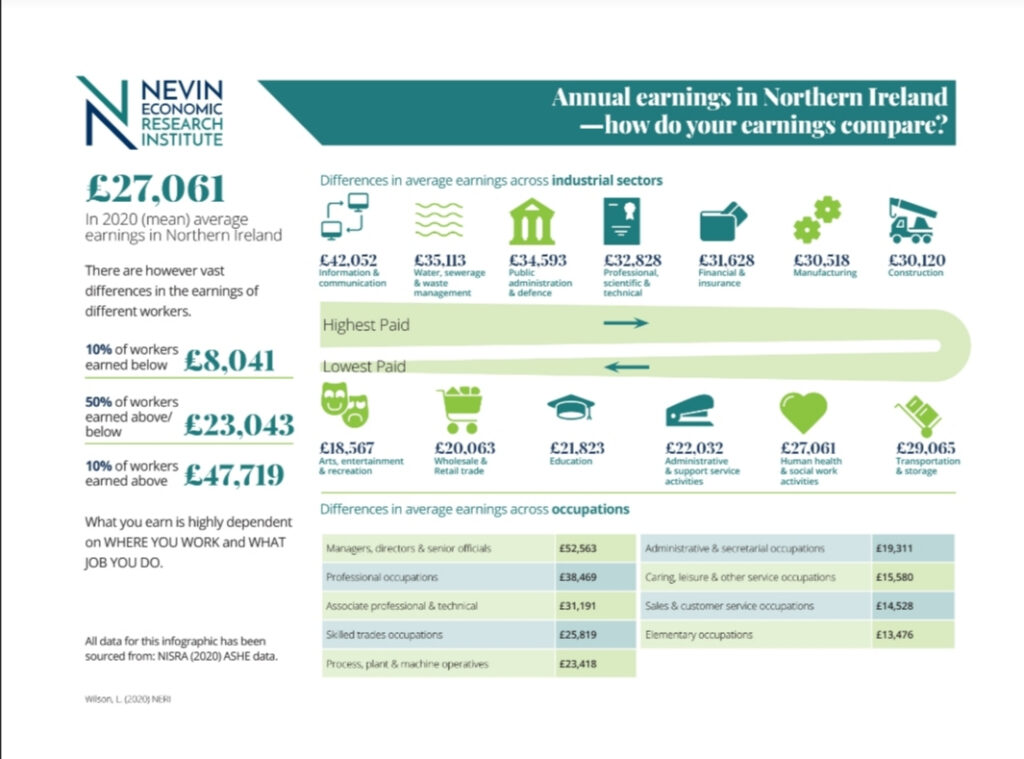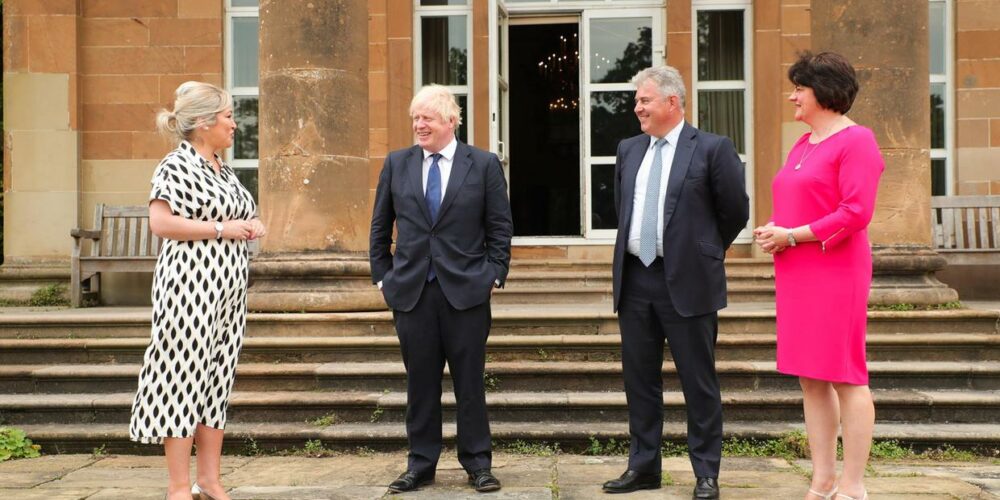A hundred years after the partition of Ireland, a survey carried out by the Nevin Economic Research Institute on the annual earnings of workers in the North has exposed the reality for workers living in this British colony.
Wages in the North are much lower than any region in Britain, as are those of workers on low pay, with a quarter of all workers earning less than the living wage.
10 per cent of workers earn less than £8,041 per year; 50 per cent earn less than £23,043. To be in the top 10 per cent of earners you need only earn £47,719 a year. Put another way, 90 per cent of all workers earn less than £47,719 a year.
There is nothing for workers to celebrate in the centenary of partition. The North of Ireland is truly a disaster area, an abject economic failure.

The coronavirus pandemic did not cause these extraordinary levels of poverty wages: it exposed them, as front-line workers had a spotlight shone on them. The high rate of coronavirus infection in the North is inextricably linked to the high number of low-paid workers in the region and on all the repercussions these low rates of pay have on society. Sub-standard, overcrowded housing, poor diet, bad working conditions and long hours of hard toil, often on an empty stomach, inevitably contribute to the spread of disease.
The political failure of partition has also been exposed, including the failure of the Stormont Executive to act on public-health advice, and its inability to quickly establish the proper financial support for workers laid off because of the pandemic without first having the say-so of London.
At the end of 2020 the North had the highest death rate per 100,000 from covid-19 in Europe—double that of the “United Kingdom” and four times the rate in the South of Ireland. Unionist parties voted against a ban on travel between Britain and the North, despite a new strain of coronavirus (70 per cent more infectious) spreading like wildfire there.
Only in a dysfunctional society would political parties vote in effect to facilitate the movement of thousands of people during a pandemic from areas worse affected by a new variant of a lethal virus. This is a failure to protect lives in order to protect the political union at all costs.
Sinn Féin blamed the DUP for not following public-health advice, while the DUP blamed first the Bobby Storey funeral, then society in general, for not adhering to the guidelines—this when a leading member, Sammy Wilson, was repeatedly photographed in public not wearing a mask. This is not the type of leadership that is required by politicians during a pandemic.
Both Sinn Féin and the DUP are falling straight into the British trap, the unnatural division of the Irish working class created by British imperialism to serve its own purposes, when both parties should have tackled the real cause of the failure: British rule in the North and the partition of Ireland.
The failure politically and economically of the North is clear to see by everybody except some who live there. They can’t see the forest for the trees, it seems. Britain is not a neutral benefactor: it is an imperial master. People need to decolonise their minds, as British colonialism is embedded in the minds of many of the people in the North.
Everybody is naturally proud of the great victory by the British working class in the 1940s in achieving an outstanding National Health Service. Unfortunately, the version of this service in the North—its worst-performing region—is only a small fraction of the service provided in Britain. The NHS in the North is now overwhelmed by the upsurge in the number of patients with covid and years of underfunding, outsourcing and privatisation by successive British governments.
There can be no going back to “normal” after this pandemic—the normality of low pay, crumbling services, and an unnatural division fuelled by an imperial master.
There are not two communities in the North: there are two classes, one dividing the other since partition to remain in control. Working-class unity is the rustproof weapon against our class enemy.
The only fitting way to celebrate the hundredth anniversary of the partition of Ireland is by bringing it to an end, building together a united, independent workers’ republic of the people, for the people, with no masters, be they in London, Brussels, or Rome.






